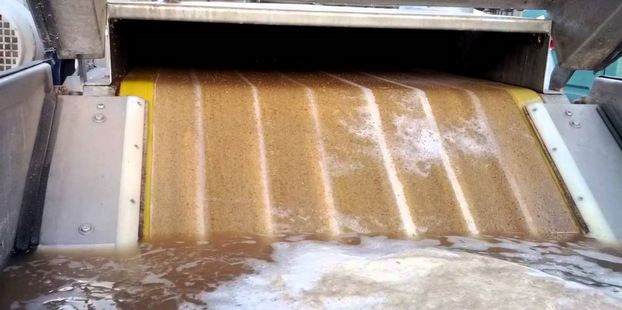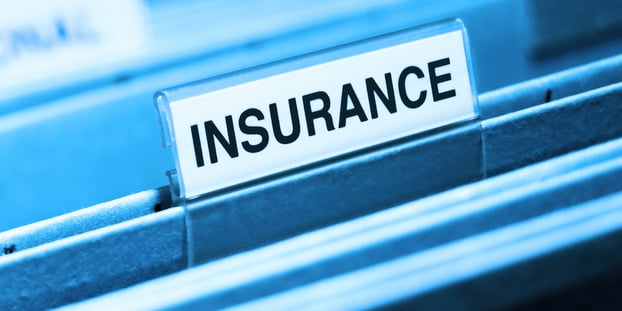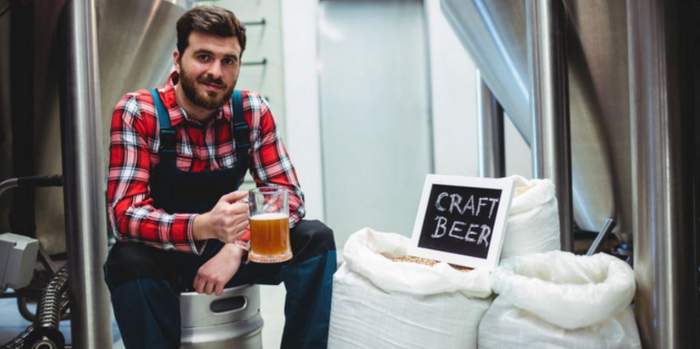Beer brewing is, in many ways, the alchemical process of turning ubiquitous tap water into a golden elixir. In fact, it takes about seven barrels of water to brew a barrel of beer, according to the Brewers Association. Those lost barrels of water are disposed of as effluent, liquid sewage to be washed through city sewers and into rivers and oceans.
That’s why breweries are looking for safe and sustainable options for treating wastewater, like Bear Republic’s recent adoption of a “bioelectrically-enhanced,” on-site wastewater treatment system. It converts the nutrient portion of the brewery wastewater to methane, which is then used for generating electricity and heat; the treated water is discharged to the municipality.
It’s that last step — discharging the water — that poses a huge risk for breweries, no matter how advanced their on-site wastewater treatment is. Whether caused by wastewater mismanagement or spills of finished product, environmental pollution is a real risk. Of course, well-established breweries have practices in place to safely dispose of wastewater and prevent large spills of product. But smart risk management includes having the right insurance coverage.
Let’s examine a few scenarios to get an idea of why insurance coverage for pollution is necessary. Though we can’t really know exactly what insurance applied to these examples, they highlight the importance of specialty environmental coverage.
The cost of failing to comply
Environmental regulations on a state and federal level make safe disposal of wastewater a mandate for breweries. The costs of failing to comply with the mandates are high, whether the neglect is deliberate or an accident.
In June 2016, Yuengling Brewery in Pottsville, Pa., paid a $2.8 million penalty to the federal Environmental Protection Agency. The EPA alleged the nation’s oldest brewery violated the Clean Water Act hundreds of times over an eight-year period by exceeding their limits for pretreatment discharge into the municipal wastewater treatment plant. In addition to the fine, Yuengling has been required to take several steps to mitigate the effects of future discharge, including the construction of an $8 million wastewater pre-treatment system.
The cost of environmental damage and remediation
A simple accident can incur a high cost as well. That’s because brewery wastewater poses a unique danger to waterways and the organisms that inhabit them. The high sugar content of brewery wastewater can change the chemical properties and PH of the water, and the solids content can reduce visibility for animals and fish, clog fish gills and smother larvae. A finished product, of course, shares many of these properties with wastewater, so it may be considered pollution if it contaminates waterways.
And there are pollution accidents involving beer. In 2000, an employee of Coors Brewing Co.’s Golden, Colo., brewery hit the wrong switch — and 77,500 gallons of beer poured into nearby Clear Creek. Though the beer washed through a wastewater treatment plant before reaching the creek, more than 50,000 fish died of suffocation. Coors was fined $500,000 and was required to fund a pilot constructed wetland project; wastewater was released from the brewery into the creek through the wetland in question.
RELATED: Tips to protect barrel-aged beer during the brewing and aging process
Advice for coverage
In some states, insurance coverage is available for civil fines, penalties and assessments such as those that Yuengling incurred. A specialty insurance policy will include coverage for both sudden and gradual pollution events, as well as both new incidents and historical pollution conditions.
When human error is involved, the aforementioned coverage for fines and penalties may apply. Such an incident could also trigger coverage for natural resource damage; specialty insurance coverage will include natural resource damage in the policy’s definition of “property damage” and cover pollution conditions both on- and off-site of the business.
These coverages are available as part of a specialty environmental liability insurance policy. If you are looking for that kind of policy, try to find one that also includes coverage for non-owned disposal sites and in-bound and out-bound transportation for products or waste — that is, coverage that applies to where your waste ends up and how it gets there. In the event of large accidents or spills that require shutting down part of your operation, coverage for business interruption is also necessary.
Coors and Yuengling may be larger than most craft brewing operations, but their examples do show how much there is to consider when mitigating the risk of wastewater pollution and insuring any brewery for this risk. If you are unsure of your coverage, have a conversation with your insurance broker or speak with an insurer who specializes in breweries.
This great article was sent over from Paul Martinez, Brewery Pak Program Manager, Pak Insurance Programs. Martinez has 20 years of commercial insurance experience and six years of experience underwriting breweries. He travels throughout the United States and Canada visiting breweries providing risk management and loss prevention services for the brewery industry.






Leave a Reply
You must be logged in to post a comment.